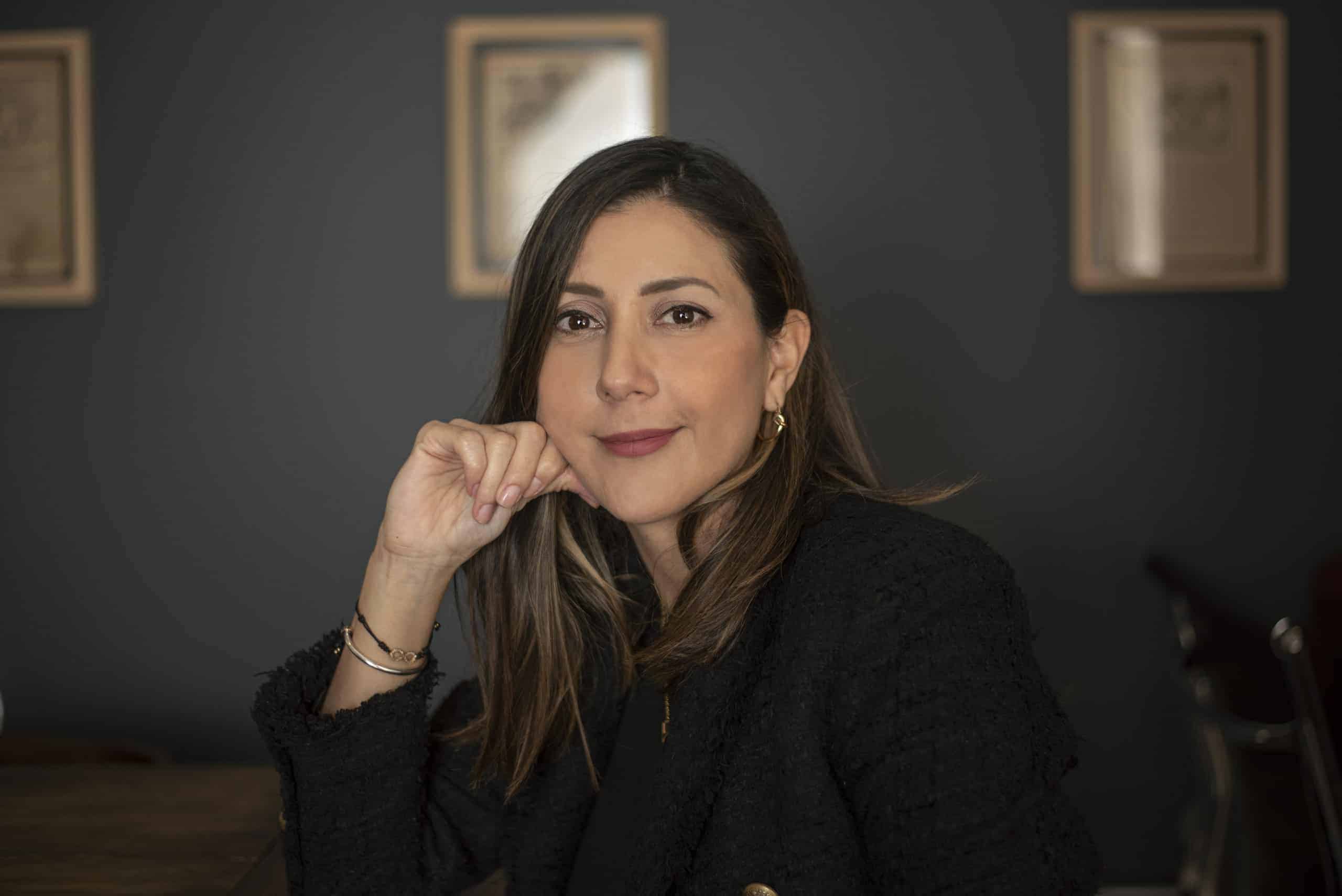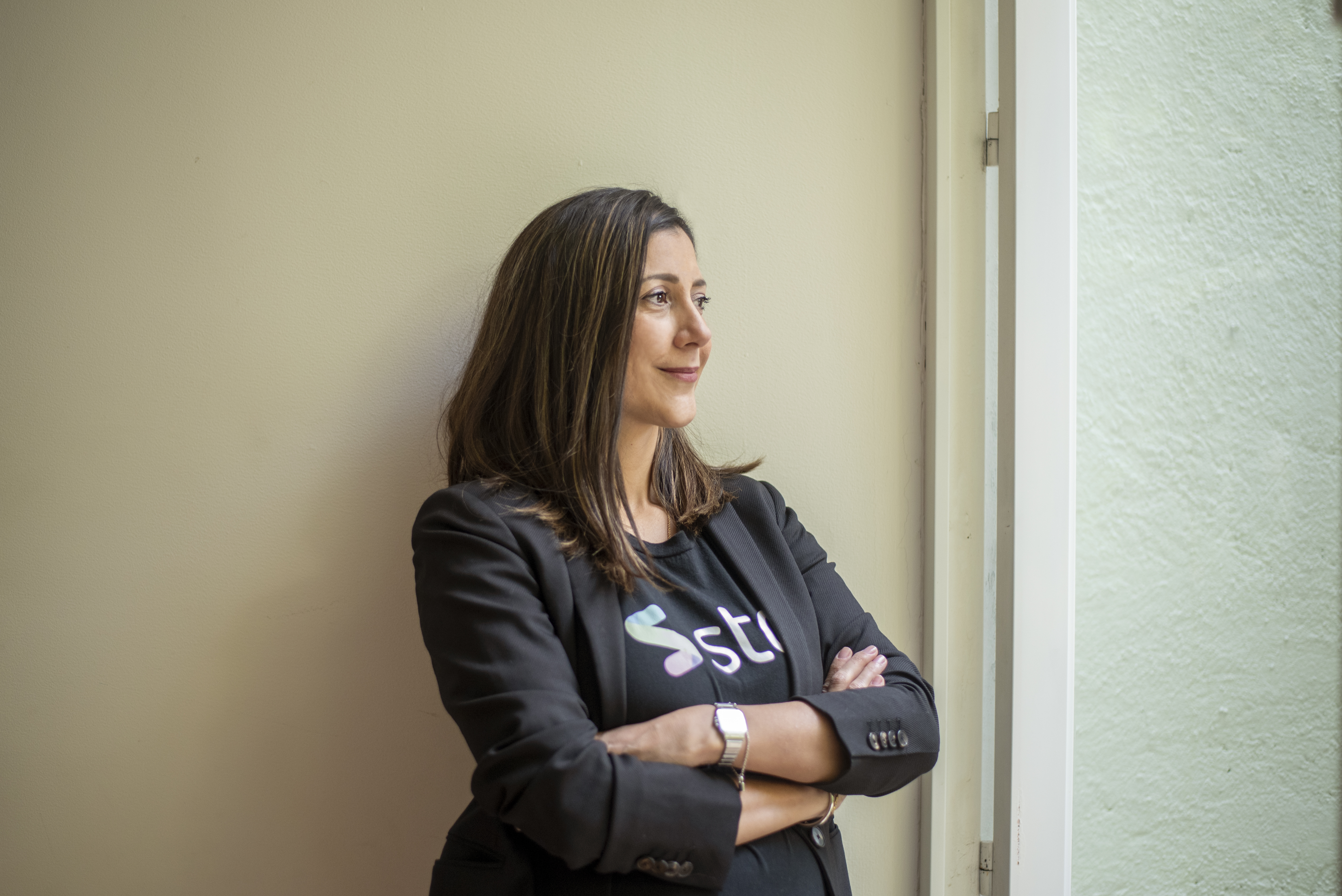
Por Sandra Pérez
July 25, 2022
A new Mexican unicorn emerged a few days ago after raising US$150 million in a Series C and valuing itself at more than US$1 billion: Stori, a company focused on offering credit to the country’s unbanked. The fintech company founded not only attracted the attention of the entrepreneurial ecosystem for its new status but also because it is the first unicorn to have a woman among its co-founders, Marlene Garayzar.
The co-founder and CGO of the company started in the sector almost ten years ago and told Contxto that there were very few fintech companies at that time. Her time in the industry gave her a better understanding of people’s needs, and in her quest to do something with a social impact that would also generate profits, she created Stori with her partners.
With her little daughter in her arms, the co-founder of the new unicorn sat down with Contxto to talk about how she got to the position she is in now, the challenges she has faced, and what’s next for Stori.
Before Stori, where did you work, and what experience did your jobs give you?
I spent nine years at a French finance company [Banque PSA Finance] in charge of various areas, but mainly as head of risk, operations, and collections. Then I went to GE Capital, where I was in charge of collections, and I started working in the fintech sector. In 2013 and early 2014, I started in the industry, and there were few companies in the sector in Mexico. At that time, my job was to open a European fintech [4Finance] in the country and take charge of the operation. There I realized that using technology could impact more people and give them access to financial products without the need to have bank branches.
So, I decided to start with technological platforms but with products that would have a real impact on financial inclusion, that would not only solve an emergency for my clients but would also be the first gateway to the formal financial world, which most of the users that Stori serves lack.

(Photo: Stori)
While you were studying and when you started working, was it clear that you wanted to create your own company?
It wasn’t clear to me. What I wanted was something that would have a social impact. I was even thinking about working in government. I was doing well, but I felt that that was not where I had to continue growing because I was not generating a real social impact. And by the social impact, I don’t mean making an NGO that doesn’t make money, but a business that can continue to grow and make a profit, but at the same time reach people’s lives with good products that no one else gives and that takes into account their needs and not just those of the company.
What challenges have you faced to get to where you are now as an entrepreneur?
Being an entrepreneur is difficult because I am a mother and have two children. It has not been difficult for me because of my commitment and the time I dedicate to Stori because I also consider him a baby. But as moms, we always have that idea or that guilt of wanting to spend more time with our children. So, I decided to surround myself with people collaborating to have my children close to me. I try to combine the two things; the key is to be organized and surround yourself with people who support you.
The fintech sector has always had the most investment. But in the last semester, it has decreased due to the financial crisis. What do you think? What actions should startups take?
Undoubtedly, this will affect all of us. Our commitment as entrepreneurs is that our companies should be very cost-efficient, and when they grow, they should also do so with the lowest user acquisition cost. Only those projects with a path to near-term profitability will be the ones that investors will look at.
At Stori, we know what things are important in times of abundance and also in times of scarcity, so we were already prepared, which is why we managed to raise a new round in a difficult period. The numbers show that we know how to get things done, and it doesn’t mean that we should rest on our laurels but that we should closely monitor ecomic and performance indicators of our portfolio. Check them at least every week.
Currently, do you only have a presence in Mexico?
Only in Mexico. There is still a lot to do in the country. We already have 1,400,000 clients, but this is just the beginning. There are still millions of people who have no access to financial products at all.
When you announced your last round, you said you were interested in expanding in LatAm; which countries do you plan to go to?
We would like to go to other countries, we don’t know which ones yet, but right now the main focus is Mexico. The Go-To Market team is already analyzing that because we want to reach 100 million Latin Americans. Therefore, we are creating a technological platform with financial products to reach the entire region.

(Photo: Stori)
What differentiates Stori from other competitors in the market, such as Nubank? What is your current product offering?
It is the same product in terms of being a revolving credit card and in the way it is accessed, as we are a 100% digital option. But we are not the same in the approach to the people we serve. We are serving the unbanked population, and other companies are attracting customers who are unhappy with their banks. This is not to say that the already banked are not welcome at Stori, but I would like us to reach more Mexicans who do not yet have such access.
How has your growth been?
From March 2020 to March 2022, we grew 400%. And we have been growing at double digits per month.
What’s next for Stori for the rest of the year?
Growing in talent and growing in clients. We want to be one of the main card issuers and be in the top three credit cards in Mexico by the end of the year. We will also be launching a new product by the end of 2022.

Por Yanin Alfaro
February 17, 2026

Por Israel Pantaleón
February 17, 2026

Por Stiven Cartagena
February 13, 2026